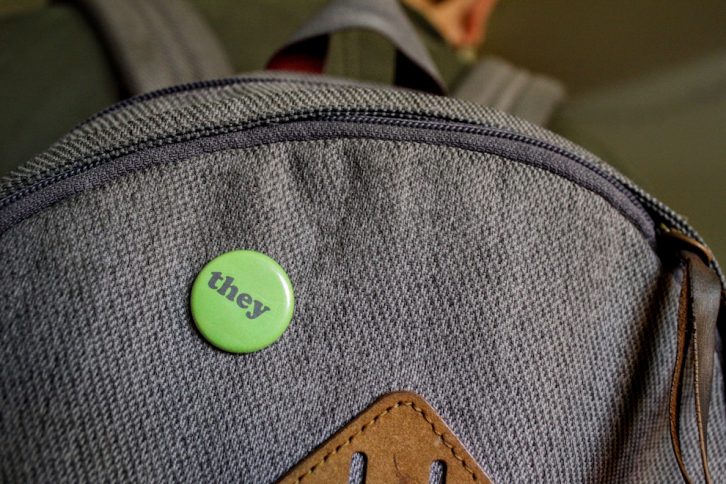Gender
N.S. NDP wants gender neutral ID
LGBT+ groups see proposals as first step

caption

caption
Nova Scotia’s NDP wants to end to gender-diverse people having to chose M for male or F for female on provincial identification. Many who don’t identify as male or female choose to be referred to by the singular “they” instead of as “he” or “she.”The provincial NDP wants transgender and other gender-diverse Nova Scotians to have official identification documents that reflect who they are.
The party introduced legislation this week that would eliminate gender markers on Nova Scotia health cards and allow “X” as an additional gender option on drivers’ licences and other provincial ID.
The X option is for people who aren’t represented by the M or F classifications. This includes non-binary people, who don’t identify as male or female, and intersex people, who were born with anatomy not defined as male or female.
While private member bills are rarely passed, Ontario already has similar legislation. This summer, that province removed the gender section from health cards and is adding the X option on licences in 2017.
Áine Morse, board co-chair of the Nova Scotia Rainbow Action Project, is a big supporter of the legislation. Morse is a non-binary person.
“Our binary systems of gender don’t reflect the realities of individuals,” says Morse. “Our experiences are more complicated.”
Morse says that having to pick a male or female identifier forces some people to make a choice that isn’t who they are.
“Every time I go see a doctor or access the public health system, I continue to be put in that box against my will,” says Morse.
The Rainbow Action Project will soon be launching a campaign to support the legislation.
“Research shows that health outcomes improve when folks can see themselves adequately represented in identification,” says Morse. This includes a decreased suicide risk, as well as improving other aspects of mental and physical health.
Kate Shewan, executive director of The Youth Project, an LGBT+ advocacy group for young people in Halifax, believes that gender markers shouldn’t be on ID at all. By removing them from health cards, Shewan believes that more gender-diverse people will voluntarily access services like healthcare.
She says that many trans people are referred by a gender they don’t identify as when they seek out medical services, because of what’s on their ID.
“Often that happens in front of a crowded waiting room, which can cause a great deal of distress,” she says. “I’ve seen people avoid accessing healthcare because they have that bad experience.”
Shewan hopes that by removing gender from health cards, it will help people avoid these situations.
“I think there’s more work to be done, but it’s definitely a step in the right direction and it’s going to make people feel more welcome, more valued, and validate their identities.”
Carmella Farahbakhsh, administrative and volunteer coordinator for Dalhousie University’s South House Sexual and Gender Resource Centre, feels that ID gender identifiers don’t represent a lot of people. Farahbakhsh identifies as a non-binary trans person.
Farahbakhsh hopes that changing the ID policy will encourage others to ask questions and help them understand the realities of gender-diverse people, who face high levels of harassment and violence because of their identities.
“Hopefully it will also open conversations, even within homes and within friend groups, around gender identity and the validity of that,” says Farahbakhsh
“It’s such a small thing that the government can do to start to build trust between trans communities and government,” says Farahbakhsh.
The N.S. NDP says it is putting forward the proposals to improve the lives of trans and other gender-diverse people.
“Information about a person’s gender identity is unnecessary for the purposes of certifying that they can drive a car, are eligible for health insurance, or to prove their age,” NDP Leader Gary Burrill said in a press release.

